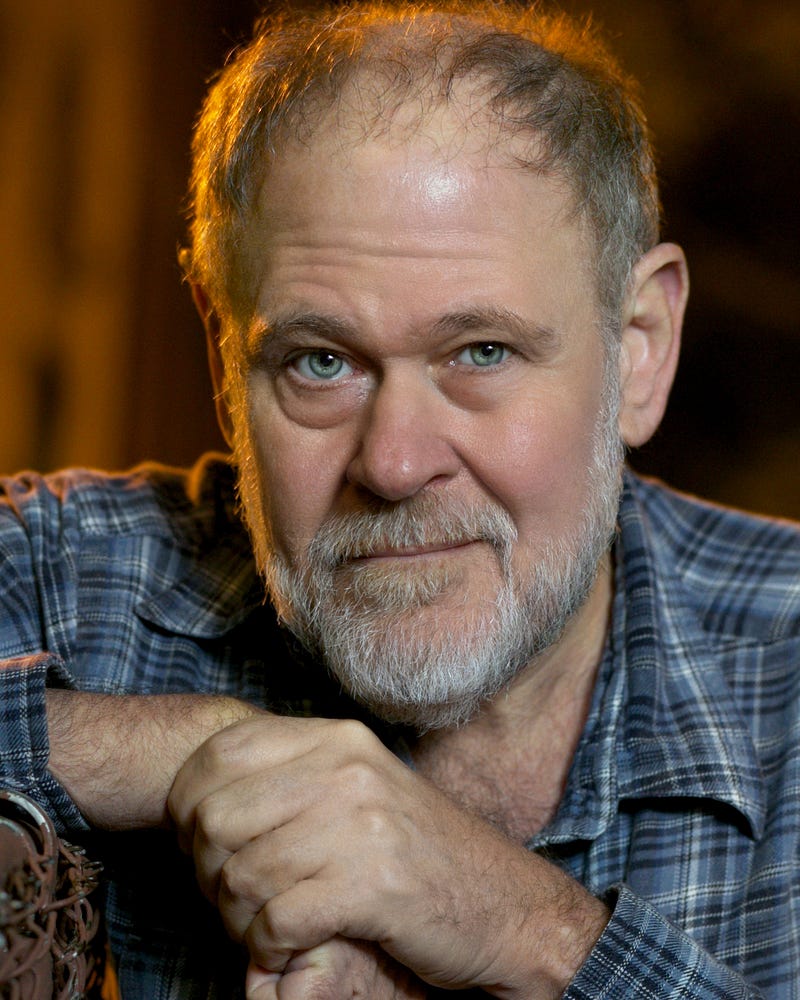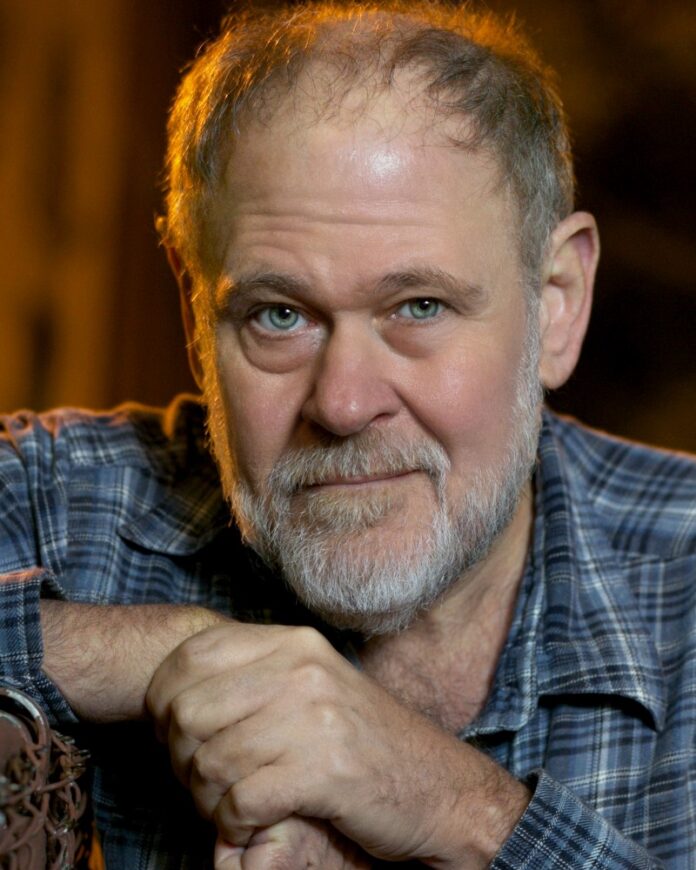Social Impact Heroes: “How Terry Greiss and the Irondale Ensemble Project are making change in the community by building empathy and communication skills between police officers and civilians”

…Well Patrena certainly is a really great example of someone who’s life has been so profoundly impacted by the work Irondale does. We have had police officers go through our program and tell us how their training helped them to deescalate situations both on their beat or even in their personal relationships. I remember one Christmas, we were so broke. I got on the train carrying an armful of presents I couldn’t afford. I was cold and feeling really down and out. I squeezed myself into a seat on that crowded train and heard from across the car “Hey, Irondale! Keep up the good work!” You just never know how you are impacting the people around you.
As part of my series about “individuals and organizations making an important social impact”, I had the pleasure of interviewing Terry Greiss.
Terry Greiss has been working in the theatre for 45 years. He is an actor, director, producer and co-founder, of NYC’s Irondale Ensemble Project. He has performed in over forty roles with the company, and is a co-creator of most of Irondale’s original works and education programs. He has conducted hundreds of workshops in public schools, prisons, theatres, professional training programs and theatres. He is a Master Teacher of Acting in the Broadway Teacher’s Summit. In 2010 he was awarded Brooklyn Arts Exchange’s Arts Education Award.
He has been a panelist for the NEA, NYS Council on the Arts, TCG, Brooklyn Arts Council and numerous other funding organizations. Terry was the Founding President of the Network of Ensemble Theatres, a national consortium of artist-driven permanent theatre ensembles. He is currently a member of the governing steering committee for the Downtown Brooklyn Arts Alliance. In addition to his work at Irondale, he is an Improv Trainer/Workshop Instructor for the Alan Alda Center for Communicating Science. With Alda he had taught improv and messaging workshops at the EPA, NASA, the Broad Institute at MIT and Oak Ridge National Laboratories
Terry has been part of three Russian-American collaborations between Irondale and the International Classic Center of St. Petersburg (1990, 1994, 1998). In 2008 he was invited by the United States Embassy to lecture and teach at Moscow’s leading theatre academies, the Moscow Art Theatre and G.I.T.I.S., at the theatre academy in Yaroslavl and at to speak about the American ensemble theatre movement at the Golden Mask Festival.
Terry has taught at the New School and the University of Wisconsin Drama Center. Occasionally venturing outside of Irondale as an actor, Terry has performed at the Manhattan Theatre Club in Humble Boy and at the Cincinnati Playhouse in Sarah Ruhl’s adaptation of Chekhov’s The Three Sisters, directed by John Doyle. On television he has been seen on PBS American Masters Series, The American Novel and HBO’s Boardwalk Empire.
In Oct. 2008, after leading Irondale’s three million dollar capital campaign, Terry and the Irondale Ensemble opened the Irondale Center, the company’s first permanent home, in the Brooklyn Cultural District.
His latest theatrical projects are To Protect, Serve and Understand a collaboration between Irondale and the NYPD using improvisation to bring police officers and community members to greater empathy and understanding and The 1599 Project — all four plays that Shakespeare wrote in 1599 performed in one night.
Terry is a graduate of the NYC High School for the Performing Arts and Sarah Lawrence College. He is married to Vicky Gilmore and has one son, Liam Gilmore-Greiss.
Thank you so much for doing this with us! Can you tell us a story about what brought you to this specific career path?
I’ve wanted to be an actor since I was thirteen years old, and I slowly realized that most actors in this country spend a very small portion of their lives actually acting. I grew to understand that much of the experience of American actors mirrored the experience of migrant workers — they spend more time getting the job, thinking about the next job and surviving until that job came along than on actually working on the craft.
I also came of age during that era when young people knew that they could change the world — that they could levitate the Pentagon, so said that wonderful “actorvist” Abbie Hoffman. My belief in the power of theater to activate people and that putting them in the same room could bring up the possibility of change really shaped by career path and life’s work. It led myself and my Irondale founding partners down so many unexpected paths and along the way, has transformed a lot of lives.
Can you share the most interesting story that happened to you since you began leading your company or organization?
There are so many!
We put out a citywide RFP to bring theater programs to at risk groups, and we won a contract with every borough. One of the programs we activated was working with adolescent teens at risk of HIV infection. Some of them worked in the sex industry, were in gangs, or were drug abusers and we were creating ensembles around the city using grant money to pay kids to come and participate. It empowered them and gave them an incentive to show up. One of the young women who registered in the job corps program, Patrina, was training to be a chef. She came from a very rough background but was in love with theater and always wanted to be an actress despite never having had any exposure to the arts. She often hung around the theater where we were doing our next show and showed up to our rehearsals every day. I offered her an internship but could only pay her $400 a week for her time. Unsure of whether she would accept my offer, she replied “I can’t afford not to do it.” And today, Patrena is one of the most talented people I know. She became an equity actress, has performed in many of Irondale’s productions and has worked on stages all over the country. She was on an episode of The Sopranos too. I helped her with her college auditions, and an Irondale board member paid for her first year of school.
Can you share a story about the funniest mistake you made when you were first starting? Can you tell us what lesson you learned from that?
Irondale runs on what we like to call “the oops theory.” When we were getting established, we didn’t ask the right permissions or file the right things. We are a company started by artists and not by administrators. We learned best by what we did wrong. If we didn’t file a tax paper, we got an angry letter from the IRS. We kept writing checks because there were still checks in the checkbook without looking to see if we actually had money in the account. We learned by the seat of our pants. I became the Executive Director because I was the only one who had an answering machine. I wasn’t afraid to ask for money or to talk about money. My apartment became our office. It was humble beginnings but looking back we wouldn’t have changed a thing.
Can you describe how you or your organization is making a significant social impact?
Our cop project, To Protect, Serve and Understand is rooted in making change in our community by building empathy and communication skills between police officers and civilians. The plays we choose each season speak to what is going on in the world. They are selected because they bring to light what America is about. The young company and our STEAM programs are also reaching thousands of kids and are providing them with so many tools that they will use no matter where life takes them
Can you tell us a story about a particular individual who was impacted by your cause?
Well Patrena certainly is a really great example of someone who’s life has been so profoundly impacted by the work Irondale does. We have had police officers go through our program and tell us how their training helped them to deescalate situations both on their beat or even in their personal relationships.
I remember one Christmas, we were so broke. I got on the train carrying an armful of presents I couldn’t afford. I was cold and feeling really down and out. I squeezed myself into a seat on that crowded train and heard from across the car “Hey, Irondale! Keep up the good work!” You just never know how you are impacting the people around you.
Are there three things the community/society/politicians can do to help you address the root of the problem you are trying to solve?
Instead of keeping artists on the margins of society and looking at us as entertainment or a way to build tourism, every city agency and political organization should find ways to partner seriously with arts organizations. We are all facing the same problems, but artists tend to solve them in intuitive bridge building ways.
Here in New York City, the Mayor has started the Mayors Cultural Initiative that has supported Irondale the past 2 years. This is a great paradigm. Political leaders everywhere should look within their own neighborhoods to see who they can partner with to tackle social problems.
How do you define “Leadership”? Can you explain what you mean or give an example?
Good listening, dynamic listening, and being willing to change. A leader shouldn’t have all of the ideas but listen to the people who are around them. Traditional leadership has always been “I’m the leader, follow me.” Instead it should be “Stand next to me and let’s solve this together.” Good leaders also have an eye for choosing the right people. If you cast the right players in your organization properly, then leading is really a no brainer.
What are your “5 things I wish someone told me when I first started” and why. Please share a story or example for each.
If anyone told me cautionary things I wouldn’t have listened. You are on the high dive and you are either going to jump or turn back. If you jump you just hope there is water in the pool.
You are a person of enormous influence. If you could inspire a movement that would bring the most amount of good to the most amount of people, what would that be? You never know what your idea can trigger. 🙂
I would do the work we are doing now with the police and civilians with Palestinians and Israelis, with Democrats and Republicans and with the American congress.
Can you please give us your favorite “Life Lesson Quote”? Can you share how that was relevant to you in your life?
The Mary Ellen Carter, by Stan Rogers
“And you to whom adversity is dealt the final blow
With smiling bastards lying to you everywhere you go,
Turn to, and put out all your strength of arm and heart and brain
And like the Mary Ellen Carter, rise again.”
Is there a person in the world, or in the US whom you would love to have a private breakfast or lunch with, and why? He or she might just see this, especially if we tag them. 🙂
John Stewart. He is hands down one of the best interviewers of all time- his mind is so sharp and his questions so insightful. Hey John, I’ll pay!
How can our readers follow you on social media?
On Facebook and Instagram at @IrondaleCenter!
This was very meaningful, thank you so much. We wish you only continued success on your great work!


